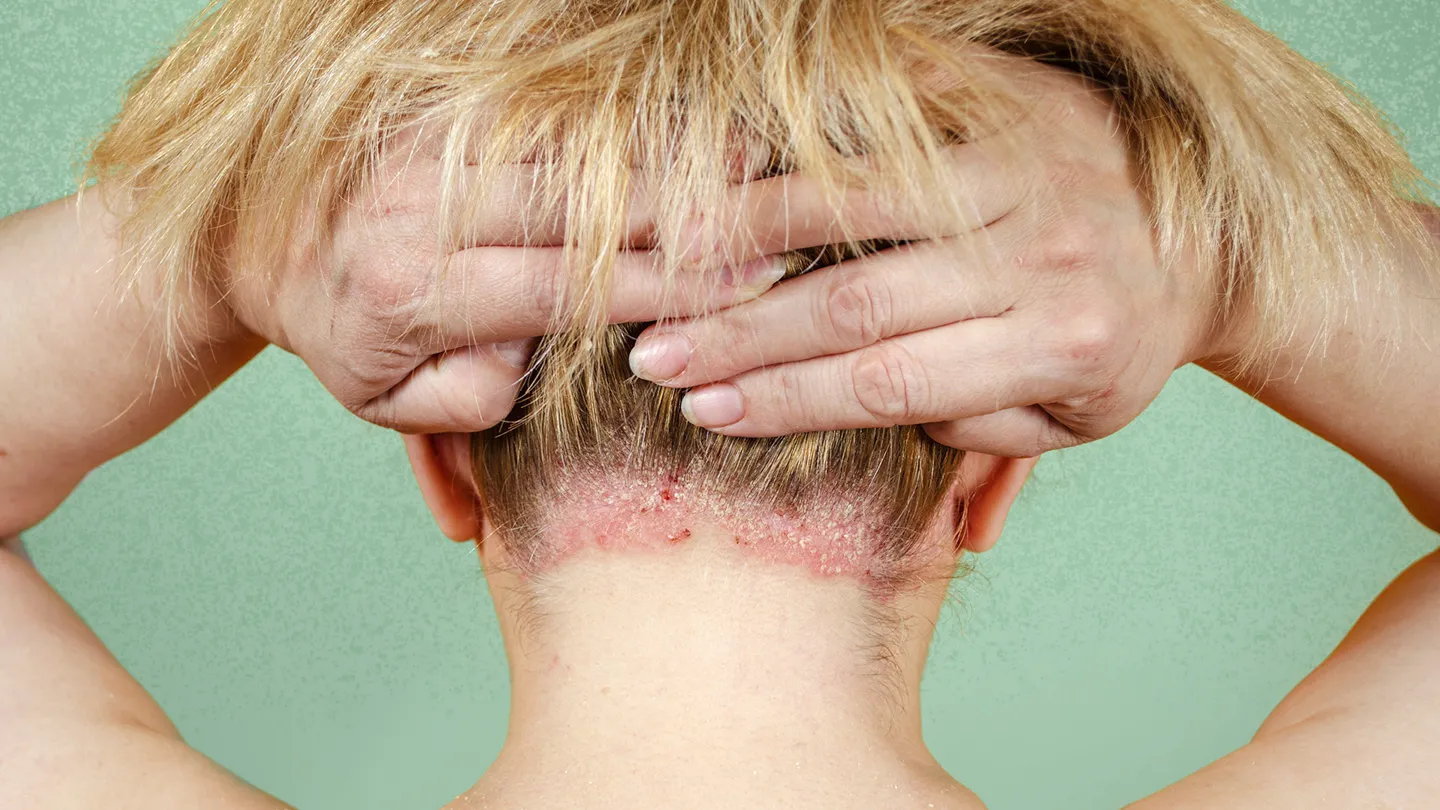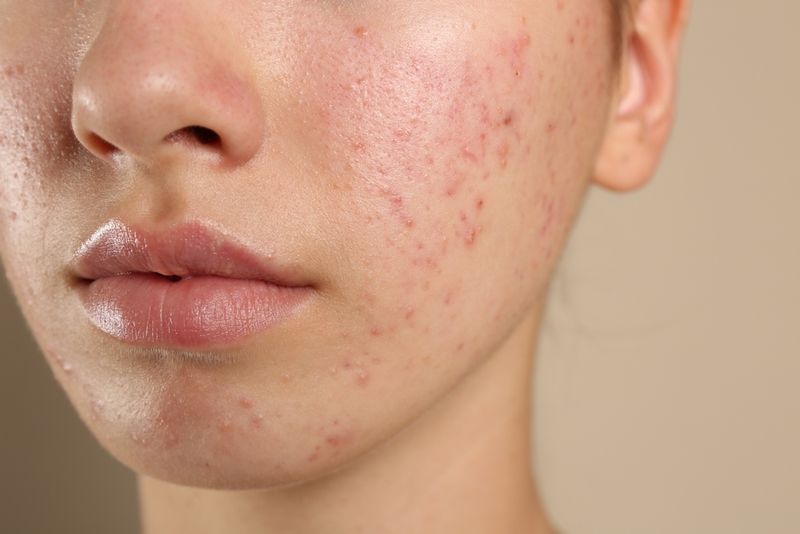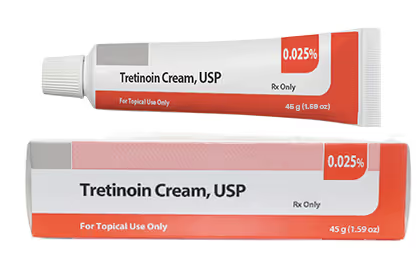Psoriasis is a chronic autoimmune condition where the life cycle of skin cells accelerates, leading to the formation of scales and red, inflamed patches that can be itchy and painful. Beyond the physical symptoms, psoriasis can significantly impact emotional well-being. Understanding the available treatments is the first step toward managing symptoms, reducing flare-ups, and achieving clearer skin. Treatment for psoriasis is not one-size-fits-all; it is tailored based on the type of psoriasis, its severity, the areas affected, and a patient’s overall health. The goal of any treatment plan is to reduce inflammation, clear the skin, and establish long-term control over the condition to improve daily life.
Topical Treatments: The First Line of Defense
For mild to moderate psoriasis, topical treatments—medications applied directly to the skin—are the primary approach. These treatments work locally to reduce inflammation, control scaling, and alleviate itching, which minimizes systemic exposure and potential side effects. The choice of topical agent depends on the psoriasis severity, its location, and the extent of skin involvement. At Honeydew, our dermatology providers excel at selecting the most effective initial topical treatments, tailored to each patient's specific presentation of psoriasis.
Corticosteroids
Topical corticosteroids are a cornerstone in managing psoriasis, often prescribed first due to their proven efficacy. Their primary actions include reducing inflammation, alleviating redness and itching, and slowing the rapid production of skin cells. They are available in a wide range of strengths, from mild (e.g., hydrocortisone for sensitive areas) to very potent (e.g., clobetasol for thicker plaques), and come in various formulations like ointments, creams, and lotions. Placebo-controlled trials have demonstrated that very potent steroids are the most efficacious when compared to vitamin D3 derivatives, anthralin, and tar. Corticosteroids also have the lowest rates of adverse events among topical psoriasis treatments. However, proper use is crucial to avoid side effects like skin thinning, which can occur with prolonged use of high-potency formulations. At Honeydew, our providers carefully select the appropriate corticosteroid, such as triamcinolone, matching the strength and formulation to your specific condition to ensure effective relief while minimizing risks.
Vitamin D Analogues
Vitamin D analogues are synthetic forms of vitamin D that manage psoriasis by slowing skin cell growth and promoting normal maturation. They also have anti-inflammatory effects that reduce redness and scaling. Commonly prescribed agents like calcipotriene and calcitriol have been shown to perform as well as mid-potency topical steroids. A key advantage is that they do not typically cause skin thinning, making them suitable for long-term use. In a trial comparing calcitriol ointment with a potent steroid, the steroid performed slightly better, but the calcitriol group experienced a longer period of remission after treatment. Vitamin D analogues are an important option, either alone or combined with corticosteroids to enhance efficacy. Navigating these choices can be supported by Honeydew providers, who may also explore options like custom compounding to create a formulation tailored to your specific needs.
Tazarotene
Tazarotene is a topical retinoid (a vitamin A derivative) that normalizes skin cell growth and reduces inflammation. Studies have shown its performance to be equivalent to that of potent steroid groups and vitamin D analogue groups. A common side effect is local irritation, which often lessens with continued use or can be managed by combining it with moisturizers or corticosteroids. While tazarotene has a slightly higher incidence of adverse effects than corticosteroids or vitamin D analogues, it is generally better tolerated than older treatments like anthralin or coal tar. For individuals with persistent psoriasis, Honeydew's expert providers can discuss whether tazarotene is a suitable component of a personalized treatment plan.
Anthralin
Anthralin is an older topical medication used to treat psoriasis by slowing skin cell reproduction. While effective for thick psoriatic plaques, its use can be limited by skin irritation and staining of skin, hair, and clothing. An analysis revealed anthralin to be less effective than other vitamin D derivatives. To minimize irritation, short-contact therapy is often employed, where the medication is applied for a brief period before being washed off. While older, understanding all available options, including anthralin, is part of the comprehensive assessment Honeydew provides when tailoring a treatment plan.
Coal Tar
Coal tar is one of the oldest treatments for psoriasis, working by slowing skin cell growth and reducing inflammation, itching, and scaling. Recent randomized controlled trials comparing coal tar and calcipotriol (a vitamin D analogue) have shown comparable clinical efficacy between the two, though calcipotriol often has a faster onset of action. A significant advantage is that coal tar preparations continue to be considerably less expensive than many newer topical treatments, making them an accessible option. Honeydew providers can discuss whether traditional options like coal tar have a place in your personalized treatment strategy.
Salicylic Acid
Salicylic acid is a keratolytic agent, meaning it helps to soften and remove the thick scales of psoriatic plaques. By reducing scaling, it can improve the appearance of lesions and enhance the penetration of other topical medications, such as corticosteroids. It is available in various over-the-counter and prescription preparations. While generally safe, extensive application over large areas of the body carries a rare risk of systemic toxicity. Our providers often incorporate agents like salicylic acid into comprehensive treatment plans to enhance the efficacy of other prescribed topicals.
Combination Topical Therapies
Combining different topical treatments is a common and highly effective strategy in psoriasis management, often leading to improved results and potentially reduced side effects compared to using a single therapy.
- Corticosteroids and Vitamin D Derivatives: Studies show this combination is more efficacious than either therapy used alone. Vitamin D analogues can help maintain improvement and may reduce the overall amount of corticosteroid needed.
- Corticosteroids and Tazarotene: This combination is also more effective than monotherapy with either agent. The corticosteroid can help reduce the irritation commonly associated with tazarotene, and the combination has been shown to reduce the degree of steroid-induced skin atrophy.
- Salicylic Acid and Steroids: As mentioned, salicylic acid enhances steroid penetration by removing the overlying scale, making the steroid more effective on thick plaques.
The strategy of combining topical corticosteroids with either vitamin D analogues or topical retinoids is a particularly promising approach. For individuals with specific needs, Honeydew offers custom compounding of medications. This allows for the creation of tailored topical treatments, combining active ingredients in unique formulations to maximize results and minimize irritation.
Light Therapy (Phototherapy)
When psoriasis is widespread or when topical treatments are inadequate, phototherapy (light therapy) is an effective option. It involves exposing the skin to specific wavelengths of ultraviolet (UV) light under medical supervision to slow skin cell growth and reduce inflammation. While Honeydew provides expert online consultation for psoriasis, our team can also help determine if phototherapy is appropriate and assist in coordinating care with local specialized centers.
UVB Phototherapy
UVB light is a component of natural sunlight with therapeutic effects on psoriasis. In clinical settings, artificial sources of UVB light deliver controlled doses. Narrowband UVB, which uses a very specific range of wavelengths, is now more common as it might be more effective than older broadband UVB treatments. Treatments are typically administered 2 to 3 times per week. Choosing the right type of phototherapy is a decision that the Honeydew team can help you navigate, ensuring your psoriasis treatment plan is optimized.
PUVA (Psoralen plus Ultraviolet A)
PUVA combines a light-sensitizing medication called psoralen with exposure to UVA light. UVA light penetrates deeper into the skin than UVB, and when combined with psoralen, it becomes highly effective at slowing excessive skin cell growth. PUVA consistently improves skin and is often used for more-severe psoriasis. However, PUVA has more short-term side effects and greater long-term risks, such as an increased risk of skin cancer, compared to UVB therapy. Therefore, its use requires careful consideration of risks and benefits. At Honeydew, we can help determine if phototherapy is a suitable option for your specific type of psoriasis and guide you through the decision-making process.
Systemic Medications: For Moderate to Severe Psoriasis
When psoriasis is moderate to severe or has not responded to other treatments, oral or injected (systemic) drugs are considered. These medications work throughout the body to control the underlying inflammation. Individuals with more aggressive forms of psoriasis, such as pustular or erythrodermic psoriasis, usually need to start with these stronger (systemic) medications. Honeydew's providers are experienced in prescribing and managing systemic medications, ensuring patients receive appropriate care for more severe psoriasis.
Traditional Systemic Drugs
Traditional systemic medications like methotrexate, cyclosporine, and acitretin have been used for many years but require careful monitoring due to potential side effects. Methotrexate slows cell growth and reduces inflammation but is generally considered less effective than newer biologic therapies. Cyclosporine can bring rapid improvement but is usually recommended for short-term use. Acitretin, an oral retinoid, can be effective but causes severe birth defects and must not be used by women who are pregnant or may become pregnant. If you are considering systemic medications, the providers at Honeydew can thoroughly assess your psoriasis and help you weigh the benefits and risks of these options against newer therapies.
Biologic Therapies: Targeted Treatment for Psoriasis
Biologic therapies represent a significant advancement in treating moderate to severe psoriasis. These are protein-based drugs that target specific parts of the immune system involved in the psoriatic disease process, offering a more precise way to control inflammation. We are at the forefront of providing these cutting-edge biologic treatments, offering patients access to some of the most effective therapies available.
How Biologics Work
The inflammation in psoriasis involves various immune cells and signaling molecules called cytokines. Biologics work by specifically blocking the action of these key molecules, such as Tumor Necrosis Factor-alpha (TNF-alpha) or interleukins (IL-12, IL-23, IL-17). By neutralizing these specific components, biologics effectively reduce the signs and symptoms of psoriasis, often with fewer widespread side effects compared to traditional immunosuppressants.
Effectiveness of Biologics
Biologics can dramatically improve the skin and overall quality of life for many people with moderate to severe psoriasis. For many, taking a biologic has been life-changing when other treatments failed. Studies consistently show that the biologics approved to treat psoriasis can be very effective, and for many, a biologic may offer the most effective treatment available. These medications are typically self-injected at home or administered by IV infusion. If a biologic is taken continuously as prescribed, it tends to be more effective, as stopping and starting can cause it to lose effectiveness over time. While it is possible for a biologic to stop working after a person takes it for some time, studies show that for many people, a biologic remains an effective treatment for years. It is also important to know that no one biologic works for everyone; if one fails, another targeting a different pathway could work very well.
If you are not satisfied with your current psoriasis treatment, Honeydew offers the most personalized treatments available, including cutting-edge biologics that offer much more comprehensive relief. We provide access to advanced therapies like Skyrizi (risankizumab) and Tremfya (guselkumab). Our providers can manage, adjust, and recommend treatments completely online to make sure you get the results you are looking for.
Latest Research: The Future of Psoriasis Treatment
The landscape of psoriasis treatment is continually evolving, with research focused on developing more effective and safer options. Staying abreast of innovations is a priority at Honeydew, ensuring our patients benefit from the latest evidence-based approaches.
A New Light-Activated Compound: MRS7787
A recent study has confirmed the therapeutic efficiency of a new compound, MRS7787, in preclinical models of psoriasis. This molecule is light-activatable and binds to the A3 adenosine receptor (A3AR), which has anti-inflammatory effects. Researchers believe that activating the A3AR is a promising strategy for treating psoriasis. MRS7787 has two forms: an inactive form and an active form. When irradiated with blue light, the molecule changes from the inactive to the active configuration, while green light can reverse this change. This allows the compound to be injected into the body in an inactive state and then activated with light only in the desired areas, such as psoriatic skin lesions, maximizing therapeutic effects while minimizing side effects in healthy tissues.
Mechanism and Benefits of MRS7787
The active E-MRS7787 isomer can selectively activate the A3 adenosine receptor without significantly affecting other adenosine receptors, which is important for targeted anti-inflammatory effects. The development of such photopharmaceuticals could potentially avoid or reduce the risks associated with some existing therapies. This approach opens new avenues to improve therapeutic efficiency, especially in the multimodal treatment of psoriasis and for cases of treatment-resistant psoriasis. This type of research highlights the ongoing effort to develop more patient-friendly treatments, and at Honeydew, we are committed to staying updated on these advancements to offer our patients the most current and personalized strategies available.
Natural and Integrative Approaches to Psoriasis Management
Many individuals find that incorporating natural therapies alongside medical treatments provides additional relief and improves well-being. These complementary approaches should be used in conjunction with, not as replacements for, conventional care. It is crucial to discuss any complementary therapies with your healthcare provider. Honeydew providers encourage open discussions about integrative approaches, helping patients make informed decisions that complement their medical treatment plan.
Mind-Body Practices
Stress is a well-known trigger for psoriasis flares. Mind-body practices can help reduce stress and may positively impact symptoms.
- Acupuncture: Some patients have reported success with acupuncture for managing symptoms, possibly due to its stress-reducing effects.
- Massage: Massage therapy can be beneficial by reducing stress and muscle tension.
- Yoga and Meditation: Some people with psoriatic arthritis report that yoga helps ease pain, and both are excellent for stress reduction.
Herbal and Topical Remedies
Certain natural ingredients may help soothe psoriasis symptoms for some individuals.
- Aloe Vera: According to some research, aloe vera gel has been shown to help reduce redness and scaling.
- Apple Cider Vinegar: Diluted apple cider vinegar can help relieve scalp itch but should be avoided on cracked skin.
- Capsaicin: Found in chili peppers, capsaicin may help reduce inflammation, redness, and scaling.
- Dead Sea or Epsom Salts: Adding these salts to a bath is a possible remedy for removing scales and easing itching.
- Oats (Colloidal Oatmeal): Some individuals have reported a reduction in itch and redness from oat pastes or baths.
- Tea Tree Oil: Some people find shampoos with tea tree oil help relieve their scalp psoriasis.
- Mahonia Aquifolium (Oregon Grape): Applying a cream containing 10 percent mahonia has been shown to be effective in treating mild-to-moderate psoriasis in some studies.
Dietary Supplements and Spices
Certain dietary components are believed to have anti-inflammatory properties that might benefit individuals with psoriasis.
- Turmeric (Curcumin): Turmeric has been studied for its powerful anti-inflammatory properties. Research has identified its ability to alter TNF cytokine expression, which can help minimize flares.
Finding Your Path to Clearer Skin with Honeydew
Navigating the complexities of psoriasis and its various treatments can be overwhelming. We recognize the challenges of managing a chronic condition, from concerns about side effects to the frustration when a treatment stops working.
At Honeydew, our mission is to provide personalized, evidence-based dermatological care that maximizes results while minimizing side effects. If you are unsatisfied with your current treatment, we are here to support you. Our experienced dermatology providers create tailored treatment plans that address your unique type of psoriasis, its severity, and your personal goals.
We offer a comprehensive suite of solutions for psoriasis, from effective topical treatments (including corticosteroids like clobetasol and triamcinolone) to guidance on phototherapy and access to advanced biologic therapies such as Skyrizi and Tremfya. These cutting-edge biologics can offer significant skin clearance, especially for resistant psoriasis. Our convenient telehealth platform allows for expert management of your condition online. For those who may benefit from unique formulations, Honeydew also offers custom compounding of medications.
Our expertise extends beyond psoriasis to other skin conditions. For acne, we provide effective treatments like Tretinoin, Clindamycin, and Spironolactone. We also specialize in innovative approaches such as low-dose Accutane (isotretinoin), which can provide powerful benefits for any type of acne, especially persistent acne, often with a more favorable side effect profile. For eczema, we offer advanced treatments like Dupixent and effective topical therapies to control inflammation.
Your journey to healthier skin is important to us. If you are ready to explore effective, personalized solutions for your skin concerns, we invite you to connect with Honeydew. If you are not satisfied with your current treatment, remember that we offer the most personalized treatments available to maximize results while minimizing side effects, with providers who can manage and adjust your care completely online to ensure you get the results you are looking for.























